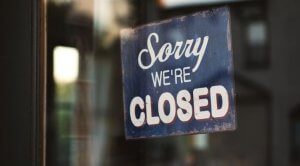 By creating lockdowns and limiting economic and personal freedoms the public sector optimizes its own affairs at our expense, writes Richard Owens in the Financial Post. Below is an excerpt from the article, which can be read in full here.
By creating lockdowns and limiting economic and personal freedoms the public sector optimizes its own affairs at our expense, writes Richard Owens in the Financial Post. Below is an excerpt from the article, which can be read in full here.
By Richard Owens, November 6, 2020
So far, the policy response to COVID has been to try to limit and control outbreaks, largely through full or partial shutdowns of our personal and economic lives. It has been a somewhat oppositional process, with lockdowns imposed by public sector authorities, and resisted, to varying degrees, by the private sector, which, now and in the future, bears their full costs.
Private sector opposition to lockdowns has been defused largely by shunting their costs, and the need to responsibly manage them, into the future. The public sector can deflect criticisms of its policies in this way because it has unlimited power to push the rest of us into debt. It is in effect buying us off with our own money. Lots of it. Whether or not government relief is essential, we can be sure it will be far less efficient and far more costly than were individuals to determine and manage their own needs. But, of course, to a large extent they cannot, because the authorities forbid their work.
The moral hazard of this situation is obvious. In fact, it is worse than it seems — because by creating lockdowns and limiting economic and personal freedoms the public sector, knowingly or not, optimizes its own affairs at our expense. It faces no loss of employment, benefits or income. Indeed, just this year federal public servants got a significant raise, despite in many cases doing little or no actual work and demonstrating that their absence had no noticeable impact on our lives. Was the ear for how that would play in Kapuskasing so very tin? Canada has two new solitudes.
Lockdowns minimize to near zero any health risk for the public sector, with the additional benefit of long paid holidays, even in places like P.E.I. where COVID is hardly a thing. The public sector makes the pandemic rules but has little skin in the game. That is a major structural deficiency in how pandemic policy is developed. Policy-makers’ perspective is unnaturally isolated from those on whom it is imposed, whose livelihoods rely on producing immediate economic value to feed their families and replenish the public purse, too. Moreover, the structural deficiencies that undermine government decision-making are exacerbated by government reliance on university “experts” — people who are in fact blinkered by the same deficiencies of perspective, if not worse. (Such limitations of institutional perspective are not moral failings: we lawyers, too, are not known for advising our clients to take even reasonable risks.)
***TO READ THE FULL ARTICLE, VISIT THE FINANCIAL POST HERE***




